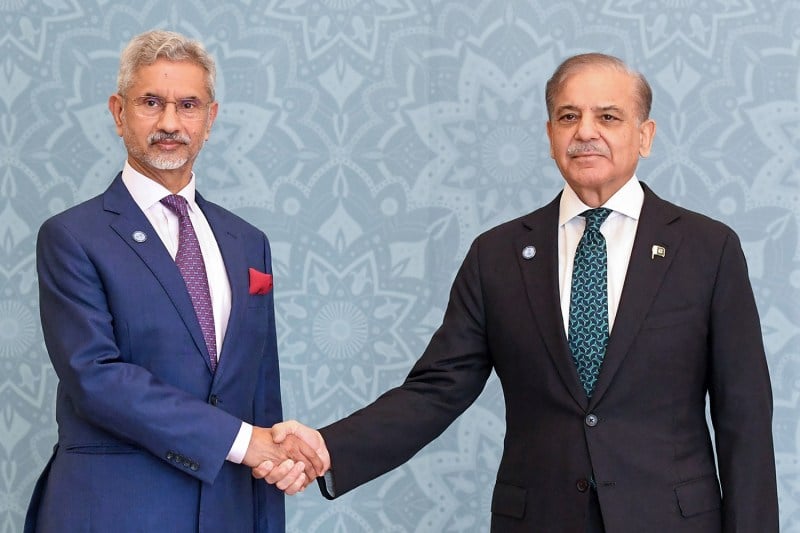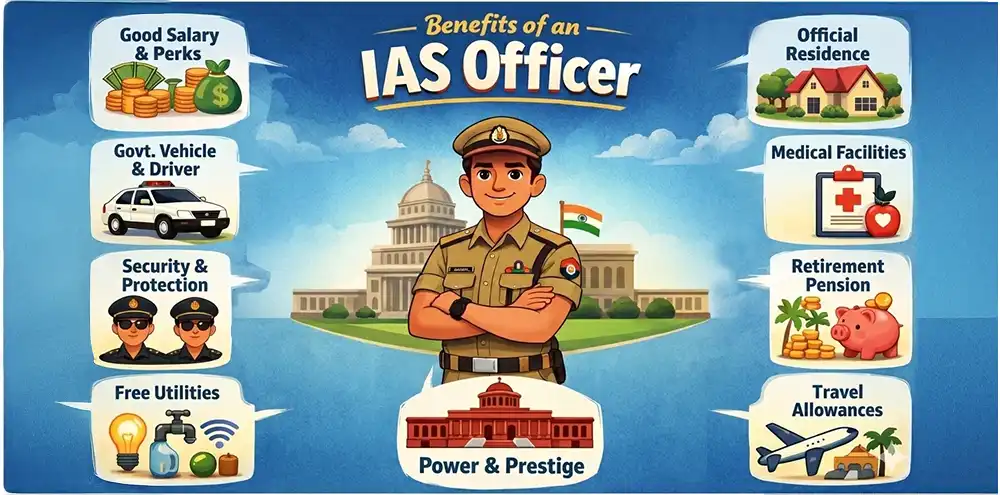Jaishankar’s Visit to Pakistan: A Cautious Step Towards Improved Relations
Jaishankar’s Visit to Pakistan: A Cautious Step Towards Improved RelationsThis essay, inspired by Mani Shankar Aiyar’s article “Leaching the Bilateral Bile” in The Indian Express (October 19, 2024), explains that while Jaishankar’s recent visit to Pakistan for the SCO summit is a cautious step towards better India-Pakistan relations, there are still many challenges to overcome. Lasting peace will need careful diplomacy, trust-building, and solutions to key issues like terrorism and Kashmir.
Introduction-Jaishankar’s Visit to Pakistan
India and Pakistan, two neighbouring countries armed with nuclear weapons, have long had a troubled relationship marked by conflicts and ongoing diplomatic tensions. Against this challenging backdrop, External Affairs Minister S. Jaishankar’s recent visit to Pakistan for the Shanghai Cooperation Organisation (SCO) summit in Islamabad represents an important, though cautious, step towards improving ties between the two nations.
This was the first visit by an Indian foreign minister to Pakistan in almost ten years, stirring discussions about the possibility of easing tensions. However, despite the positive gestures made during this visit, many challenges remain. These include key issues such as terrorism, the dispute over Jammu and Kashmir, and political pressures within both countries. These factors complicate any efforts to normalise relations. This essay examines the significance of Jaishankar’s visit, its potential effects on future relations, the challenges that lie ahead, and the cautious optimism it presents for the future.

The Significance of Jaishankar’s Visit
Jaishankar’s presence at the SCO summit in Pakistan was not only symbolically important but also a potential step toward cautious diplomacy. Relations between India and Pakistan have been tense for decades, often interrupted by violence, terrorism, and political disagreements. The last time an Indian foreign minister visited Pakistan was in 2015, and since then, relations have been further strained—especially following India’s decision in 2019 to revoke the special status of Jammu and Kashmir.
Given this tense context, Jaishankar’s visit signifies a shift toward re-engagement, even if only informally. His participation at the SCO summit allowed for some interaction, even though no formal bilateral talks were held. By attending, India showed that while there are many issues to resolve, it remains open to dialogue, at least in multilateral settings like the SCO.
The tone of Jaishankar’s visit was primarily diplomatic, with his focus on issues that deeply affect India’s security—namely terrorism, extremism, and separatism. These have long shaped India’s foreign policy towards Pakistan. In his speech at the summit, Jaishankar highlighted these concerns without directly mentioning Pakistan, but the reference was clear.
India has consistently maintained that “talks and terror cannot go together,” and Jaishankar’s approach reflected this strong stance. The absence of hostile exchanges and the polite nature of informal conversations during the summit suggest that both countries are willing to keep communication channels open, which is crucial for future relations.
Key Interactions and Discussions
Although there were no formal bilateral meetings between Indian and Pakistani officials during the summit, informal discussions did take place. One of the most notable of these interactions was the conversation about the potential resumption of cricket matches between the two nations. Cricket, which is extremely popular in both India and Pakistan, has historically played a role in easing political tensions. In the past, cricket diplomacy has provided a space for informal people-to-people engagement, creating a sense of friendship and goodwill between the two countries.
During an informal conversation with Pakistani officials, including Pakistan’s Interior Minister, Jaishankar discussed the possibility of resuming cricket matches between the two nations. While these discussions were preliminary, they are significant because they show that both sides are interested in finding ways to reconnect outside of politics. Cricket diplomacy, while seemingly simple, can help build trust and allow for people-to-people contact, which can ease some of the tensions that exist between the two countries at the political level.
Furthermore, cricket holds great cultural importance in both India and Pakistan. A bilateral cricket series, or India’s participation in a tournament hosted by Pakistan, could help bridge the gap between the two nations, fostering an environment where open dialogue and understanding can grow. While sports diplomacy alone cannot solve the deep political issues between India and Pakistan, it offers a unique opportunity to rebuild trust, which could eventually lead to more meaningful diplomatic engagements.
Beyond the talk of cricket, the overall positive tone of the interactions between Indian and Pakistani officials was a noteworthy development. These conversations, which took place during events such as a dinner hosted by Pakistan’s Prime Minister Shehbaz Sharif and a lunch during the SCO summit, occurred without any hostile rhetoric. This departure from the usual confrontational language that has often characterised India-Pakistan relations shows a desire to create a more peaceful atmosphere where future talks can take place.
Atmosphere plays a critical role in diplomacy, often setting the stage for more significant discussions later on. The absence of aggressive language during Jaishankar’s visit suggests that both India and Pakistan are interested in maintaining open communication. This change in tone, while subtle, is important. Diplomacy is not always about dramatic breakthroughs; sometimes, it is about creating a setting where future conversations can happen.
For example, the decision by the Pakistani organisers to adjust seating arrangements at an official lunch, allowing for informal conversations between Jaishankar and his Pakistani counterparts, shows a willingness on both sides to create opportunities for dialogue. Though it may seem like a small gesture, in the context of the strained relations between India and Pakistan, even these minor moves are meaningful.
In addition, the fact that these interactions occurred without the usual public provocations or media-driven hostility shows a degree of diplomatic restraint on both sides. This restraint is crucial, as inflammatory language has often led to the escalation of tensions in the past, leaving little room for negotiations or compromise. The polite exchanges between officials during the summit helped create an atmosphere more conducive to future discussions.
Broader Diplomatic Themes in Jaishankar’s Address
In his address at the SCO summit, Jaishankar focused on several key diplomatic themes that extended beyond India-Pakistan relations. He emphasised the importance of combating terrorism, extremism, and separatism—issues that have deeply influenced India’s foreign policy, especially in its dealings with Pakistan. These themes were not only central to his speech but also served as indirect references to India’s concerns about Pakistan’s role in supporting cross-border terrorism.
While Jaishankar did not directly name Pakistan, his message was clear. For India, terrorism must be addressed before any meaningful dialogue can take place. This has been a core issue for many years, and Jaishankar’s remarks reinforced India’s firm stance that terrorism cannot be used as a tool of foreign policy.
Additionally, Jaishankar’s critique of unilateral actions and his emphasis on the importance of territorial integrity were seen as references to both Pakistan and China. In particular, his comments likely referred to China’s Belt and Road Initiative (BRI), which includes projects in Pakistan-occupied Kashmir. India has long opposed the BRI because it believes the initiative violates India’s territorial sovereignty and promotes unfair economic practices in the region. Jaishankar’s remarks underscored India’s broader concerns about regional security and economic fairness.
Challenges in Normalising Relations
Despite the positive atmosphere of Jaishankar’s visit, significant challenges remain in normalising relations between India and Pakistan. The biggest obstacle is terrorism. India has consistently called on Pakistan to take action against terrorist groups operating from its territory. Until these concerns are addressed, it is unlikely that relations will improve significantly.
The Kashmir issue also remains a major point of contention. India’s 2019 decision to revoke the special status of Jammu and Kashmir has been a major source of tension between the two countries. For any real progress to be made, both sides will need to find a way to discuss this sensitive issue constructively, perhaps through back-channel diplomacy or confidence-building measures.
In addition to these issues, domestic politics in both countries add another layer of complexity. In India, the Modi government has taken a firm stance on Pakistan, using national security as a key part of its political platform. Any perceived softening of this stance could face resistance from the government’s core supporters. Similarly, in Pakistan, any engagement with India, especially on sensitive issues like Kashmir, could be opposed by political factions that view India as a primary adversary.
Opportunities for Engagement
Despite the challenges, Jaishankar’s visit has revealed several opportunities for cautious engagement between India and Pakistan. The SCO summit provided a neutral platform where both countries could interact without the direct pressure of bilateral talks. Such multilateral forums can be useful for keeping diplomatic channels open even when formal negotiations are not feasible.
As aforesaid, sports diplomacy, particularly through the possible resumption of cricketing ties, offers another potential avenue for improving relations. Cricket could provide a way for people from both countries to engage and build trust, helping to lay the foundation for more meaningful diplomatic conversations in the future.
Jaishankar’s visit also highlighted the value of informal dialogue. Even when formal talks are difficult, maintaining open communication through informal discussions can help prevent misunderstandings and reduce tensions. The fact that Jaishankar and his Pakistani counterparts were able to have such conversations during the summit, without public disagreements, is a positive sign for the future.
Conclusion
Jaishankar’s visit to Pakistan for the SCO summit represents a careful step toward improving relations between India and Pakistan. While it does not signal an immediate breakthrough, it opens the door for future engagement through multilateral forums and informal discussions. The conversations about cricket diplomacy, the positive tone of the interactions, and the broader themes of Jaishankar’s speech suggest that both countries are willing to explore ways to improve ties, even though significant challenges remain.
The road to normalised relations between India and Pakistan will be long and difficult. Issues like terrorism, Kashmir, and domestic politics will need to be addressed for real progress to occur. However, the SCO summit has shown that cautious engagement is possible, and that both countries can find ways to keep talking, even in the face of deep-seated differences.
Ultimately, Jaishankar’s visit demonstrates that diplomacy is often about small, incremental steps rather than grand gestures. By taking these careful steps, India and Pakistan may one day achieve a more stable and peaceful relationship.
Subscribe to our Youtube Channel for more Valuable Content – TheStudyias
Download the App to Subscribe to our Courses – Thestudyias
The Source’s Authority and Ownership of the Article is Claimed By THE STUDY IAS BY MANIKANT SINGH





